Plants to make your greenhouse smell nice – 5 aromatic options for growing under glass
Transform your greenhouse into a scented sanctuary with these top picks

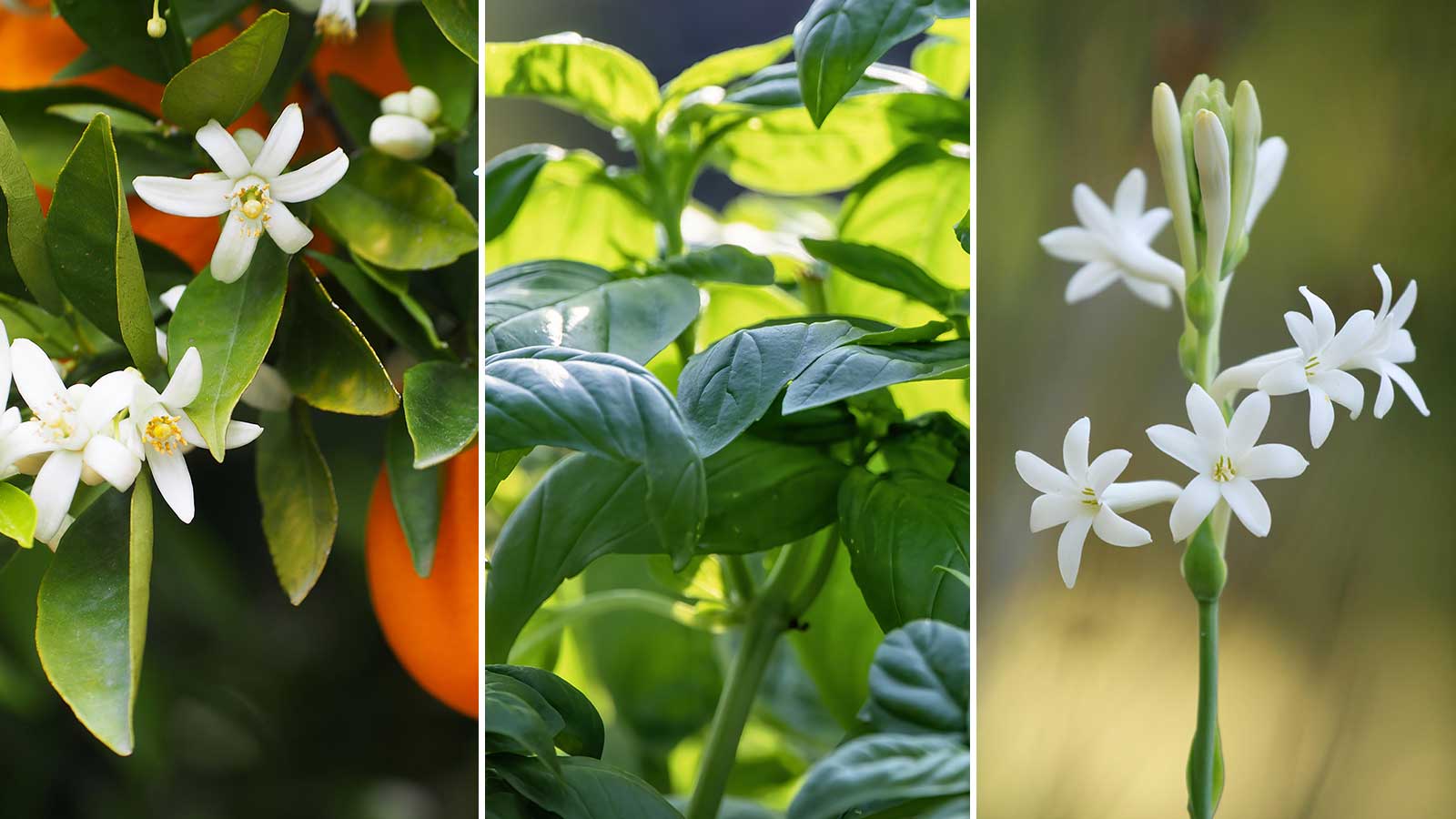
Greenhouses are valuable additions to a backyard, prolonging growing seasons and providing the opportunity to raise tender plants. And if you add a few fragrant varieties to the mix, spending time in one can be a delightful, sensory experience.
Some aromatic greenhouse plants double up as delicious crops, while others produce stunning blooms perfect for picking.
To help you get inspired for your own scented space, you'll find five top options below, plus tips from the experts to keep them healthy.
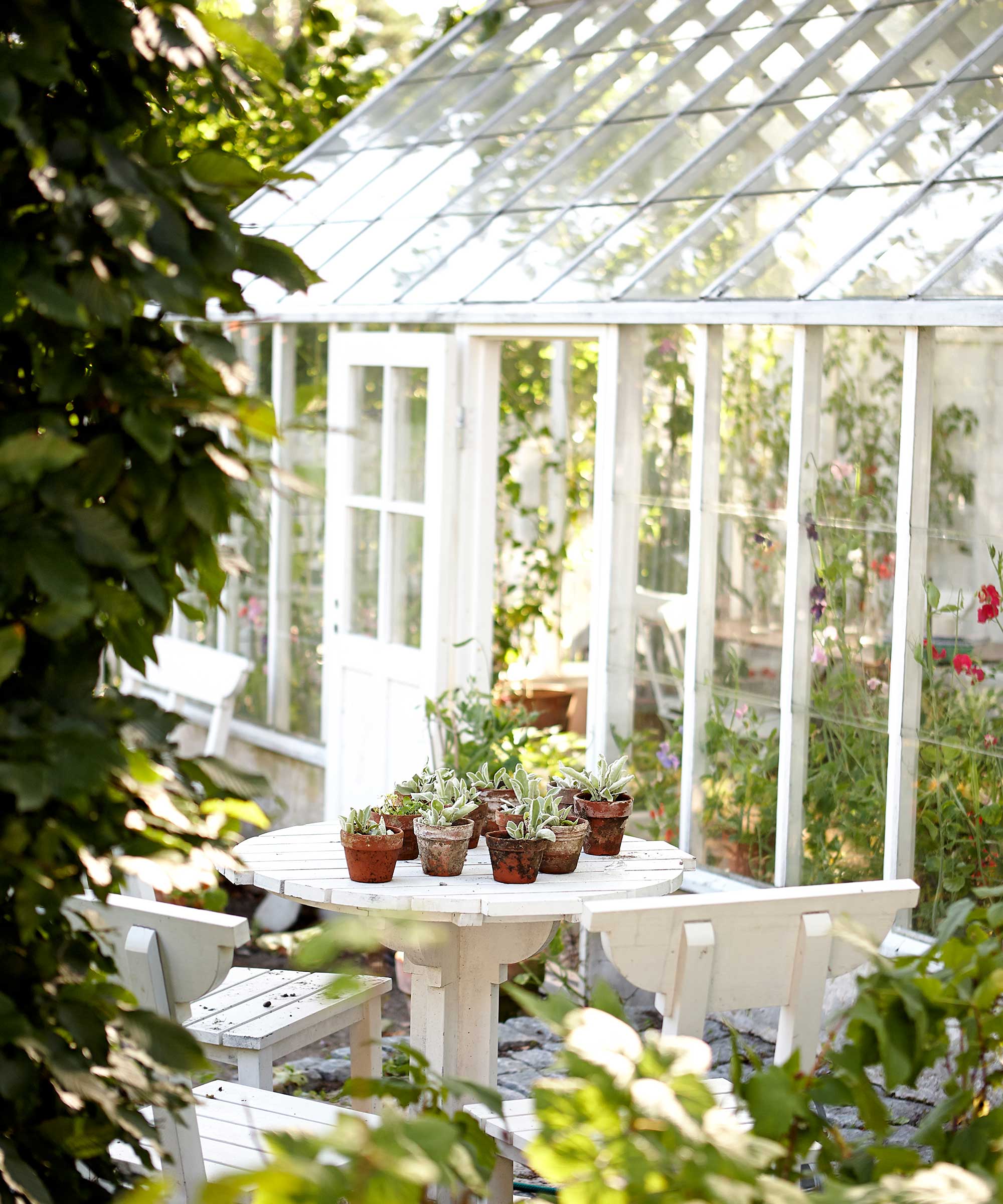
Greenhouses provide protection for plants and seedlings
5 fragrant plants for giving your greenhouse a boost
Just like the best plants to make your patio smell nice, these fragrant picks will enhance your gardening experience.
1. Basil
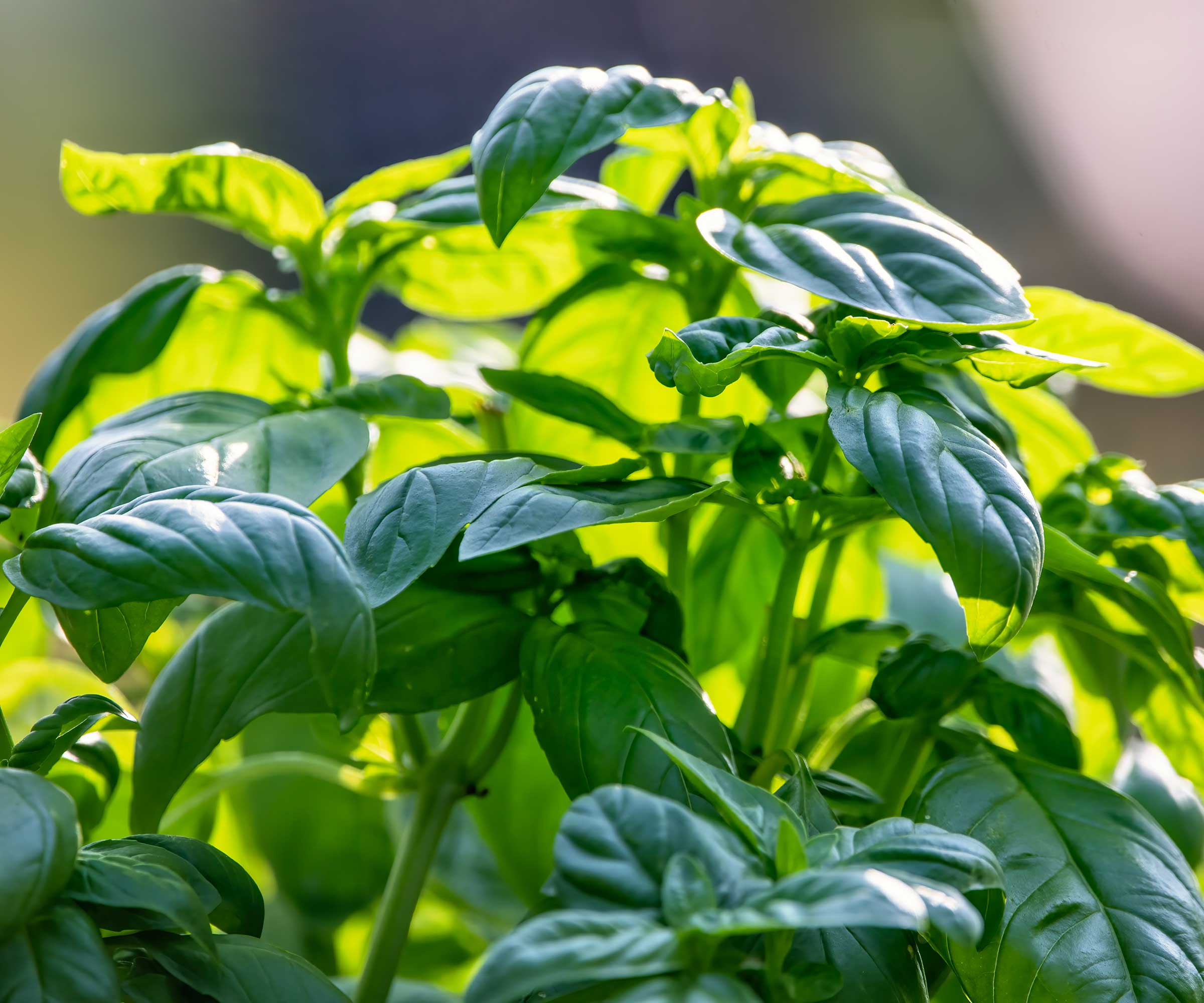
Basil is a delicious and versatile herb
Growing basil is a popular choice for herb gardens, but it can flourish in a greenhouse, too.
Diane Kuthy of How To Grow Everything says her favorite basil for the greenhouse is the 'Cardinal' variety, which produces purple flowers. 'The leaves are intensely fragrant and even the slightest breeze will fill the greenhouse with the most delicious basil scent you've ever smelled,' she says.
Diane suggests lemon basil, too, which has a unique hint of citrus in its scent and flavor. Lemon basil is available from Burpee.
Design expertise in your inbox – from inspiring decorating ideas and beautiful celebrity homes to practical gardening advice and shopping round-ups.
Charmaine Peters, a gardening expert from Arden, also recommends Thai basil. It has a distinct and bold aroma, she says, with a blend of sweet, spicy, and slightly licorice-like notes.
Anna Ohler, the owner of Bright Lane Gardens nursery, advises using well-draining soil when growing these herbs in a greenhouse, and watering when the top inch is dry. Ensure your greenhouse receives six to eight hours of sunlight daily, she adds, and maintain temperatures between 70–90° Fahrenheit with proper greenhouse ventilation.

Diane Kuthy is the founder and lead plant expert at How To Grow Everything, a collection of comprehensive grow guides for every plant and vegetable. Diane has over 10 years of gardening experience and she currently manages a 5-acre farm, a four-season greenhouse, over 50 perennial fruit and vegetable varieties, and a large indoor plant conservatory.

Charmaine Peters is the farm director at Arden, an Agrihood community in Wellington, Florida. She manages the community’s five-acre working farm, as well as a monthly farm-share program for residents.
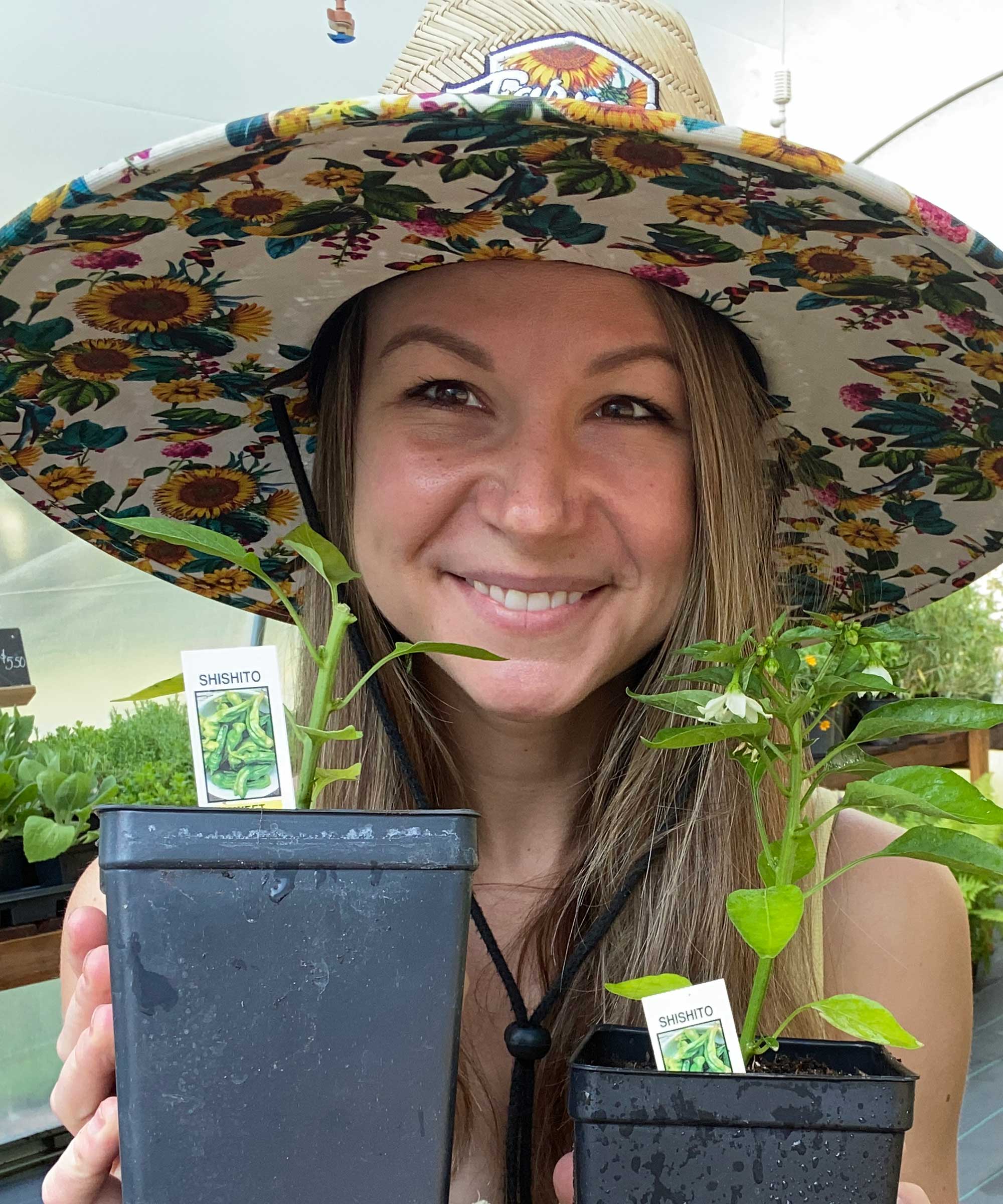
Anna is an avid plant hobbyist and the owner and operator of Bright Lane Gardens, a boutique plant nursery in Northern Michigan. With over a decade of experience in gardening and landscaping, she takes every opportunity to share her knowledge on all things plant-related. She also runs the company's YouTube channel, which is full of practical advice.
2. Citrus trees
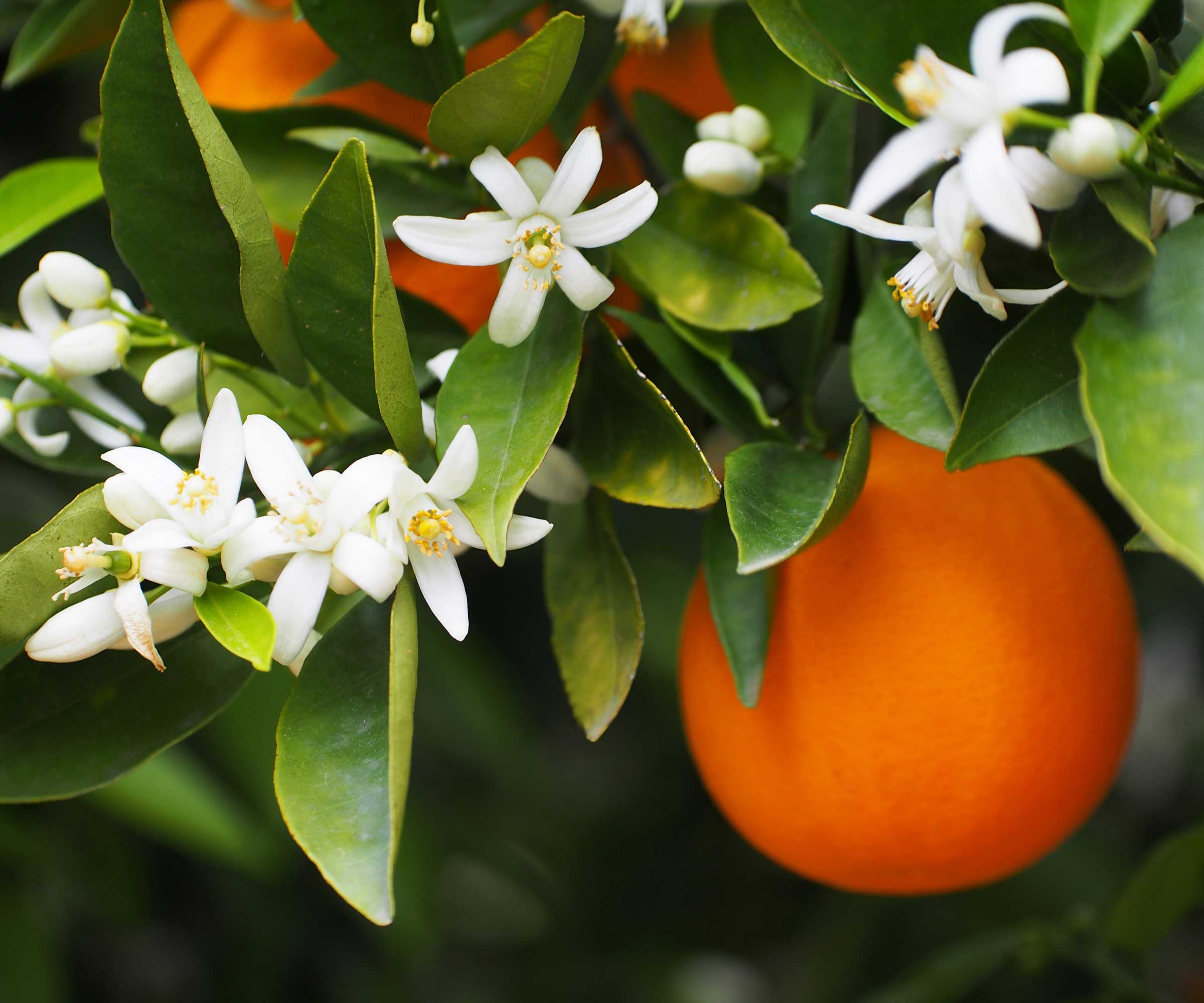
Citrus trees can grow happily in pots
Autumn Janus of Perfect Plants Nursery says, 'The scent of citrus blossoms can be delicate and sweet, making them a delightful addition to your greenhouse.'
Laurelynn and Byron Martin of Logee's Greenhouses particularly recommend the Australian red lime tree – a prolific bloomer that produces a heavy crop of burgundy-red round limes. Also known as the Australian blood lime, this compact citrus has a unique, ever-encompassing fragrance that is not your typical citrus bloom scent, they comment.
Too much moisture when growing citrus trees invites root disease, Laurelynn and Byron warn, so only water these plants when they're dry. You can limit the size of the plants by restricting the pot size, they add. 'We have successfully grown citrus in 10-inch pots that flower and fruit for 35 years plus, with just selective pruning that needs to take place to shape the tree.'
Autumn recommends providing citrus trees with at least eight hours of sunlight or supplemental grow lights per day.
A range of citrus trees is available to shop from Nature Hills.

Autumn is a horticulture specialist and marketing professional at Perfect Plants Nursery. With four years of experience in the horticulture industry, she has developed a passion for helping people create beautiful indoor and outdoor spaces to enjoy. Her expertise in horticulture encompasses a broad range of activities, including plant care and selection, landscape design, and maintenance.
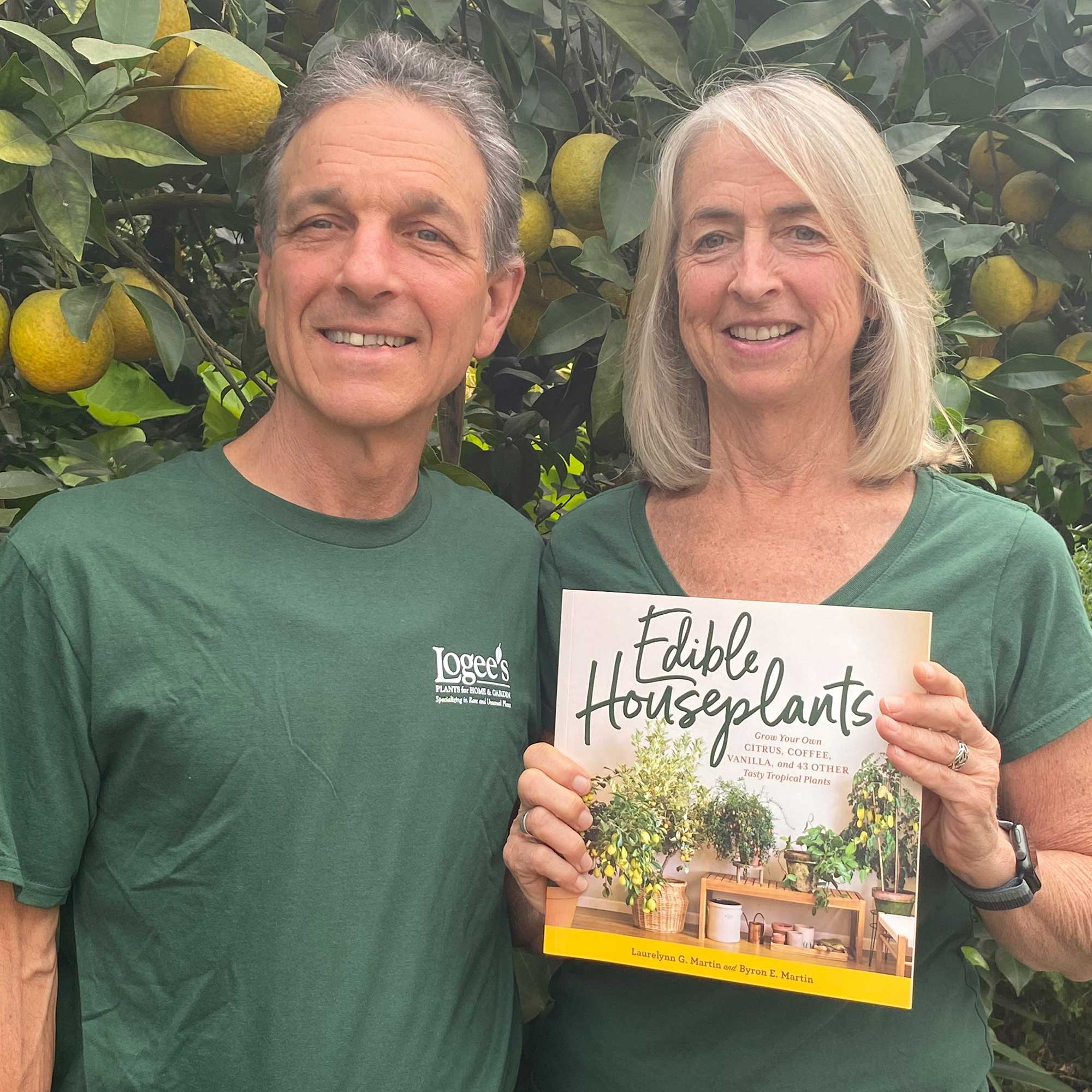
Laurelynn G. Martin and Byron E. Martin are the authors of Edible Houseplants and co-owners of Logee’s Greenhouses in Danielson, Connecticut, a business that has been in the Logee-Martin family since 1892. They are nationally recognized experts in growing tropical container plants.
3. Passion Flower x alato-caerulea
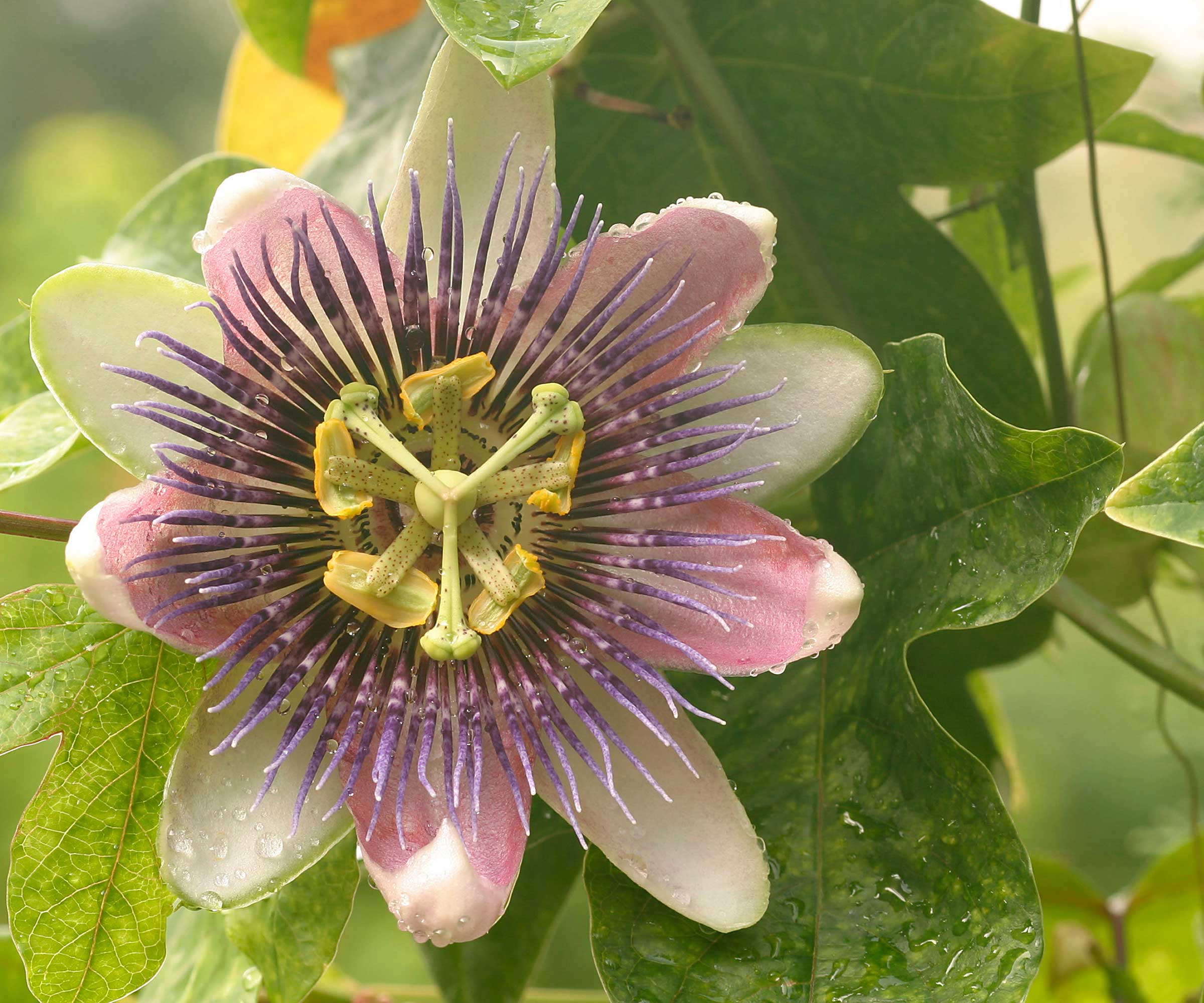
This climbing plant has intricate, scented blooms
Laurelynn and Byron say, 'Passion flower x alato-cearulea is one of the oldest in our collection, going back over 100 years, and yet it is still one of the most delightful in fragrance.' They describe its scent as sweet with a unique richness.
This is a climbing plant that needs support, they continue. It flowers in their greenhouses continuously, as long as it has a sunny exposure. 'This passion flower does well at surviving subfreezing temperatures and is zone 8 on the USDA hardiness zone.
'The structure of the blooms are typical of the genus, with white to pink sepals and petals and purple banded filaments in the center.' These flowers are an immense size, reaching up to 4 inches across, they add.
4. Tomatoes
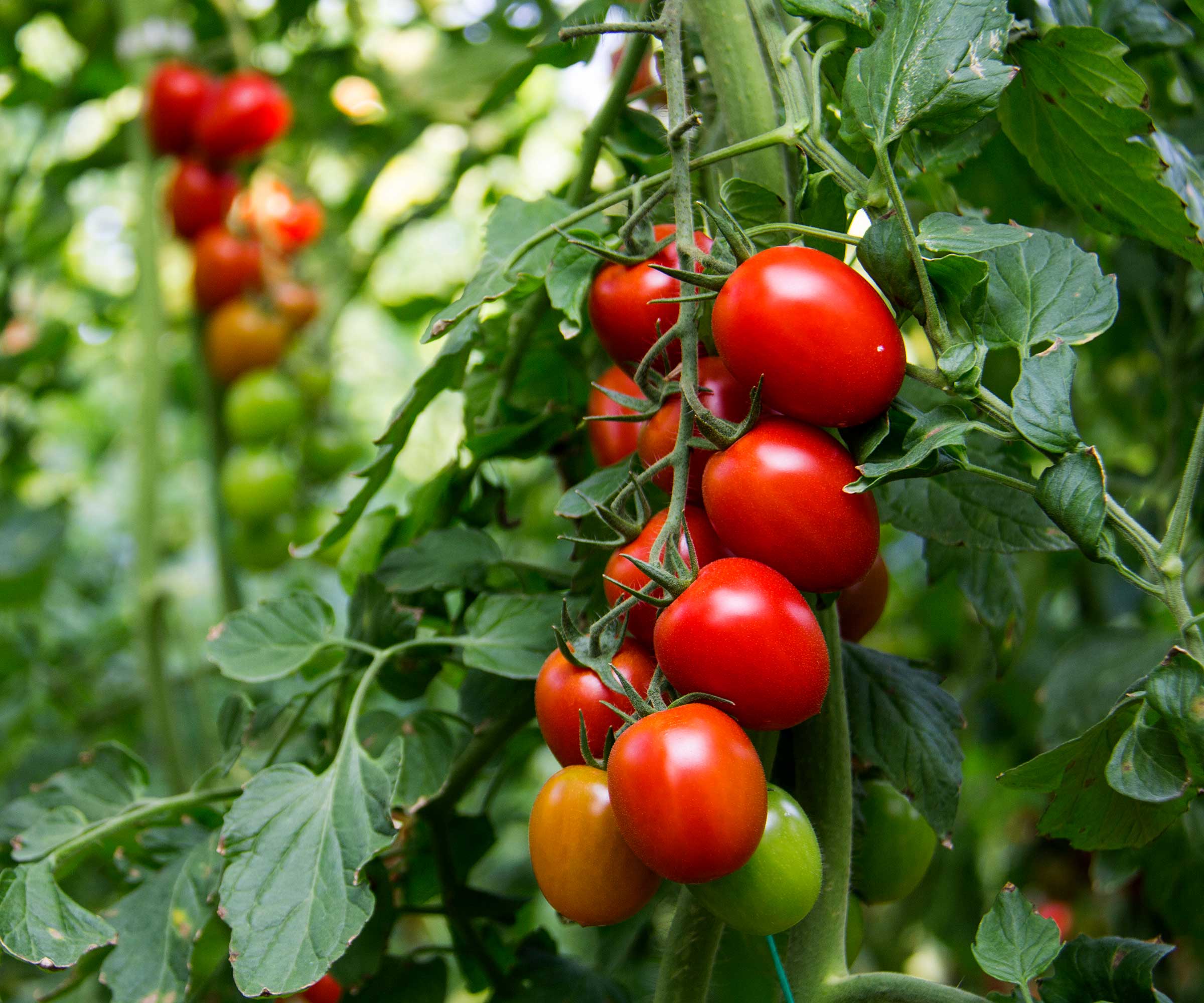
Tomatoes are a tasty crop and popular for greenhouse growing
Anna says, 'Tomatoes have a unique fragrance that is very distinct. When grown in an enclosed setting, like a greenhouse, this fragrance can become even more potent.'
When growing tomatoes in a greenhouse, keep temperatures between 65–85° Fahrenheit, Anna continues. Ensure six to eight hours of sunlight daily, use well-draining, nutrient-rich soil, and fertilize regularly, she adds.
Charmaine says to water tomatoes at the base to help prevent diseases. You can also use drip line irrigation, she adds.
Note that tomatoes usually rely on insects or the wind for pollination, as Charmaine points out. So, when growing in greenhouses, you may need to pollinate them by hand. Luckily, this is easy – just shake each plant gently to help spread pollen from flower to flower.
Burpee has a wide variety of tomato seeds available, if you fancy growing your own.
5. Tuberose
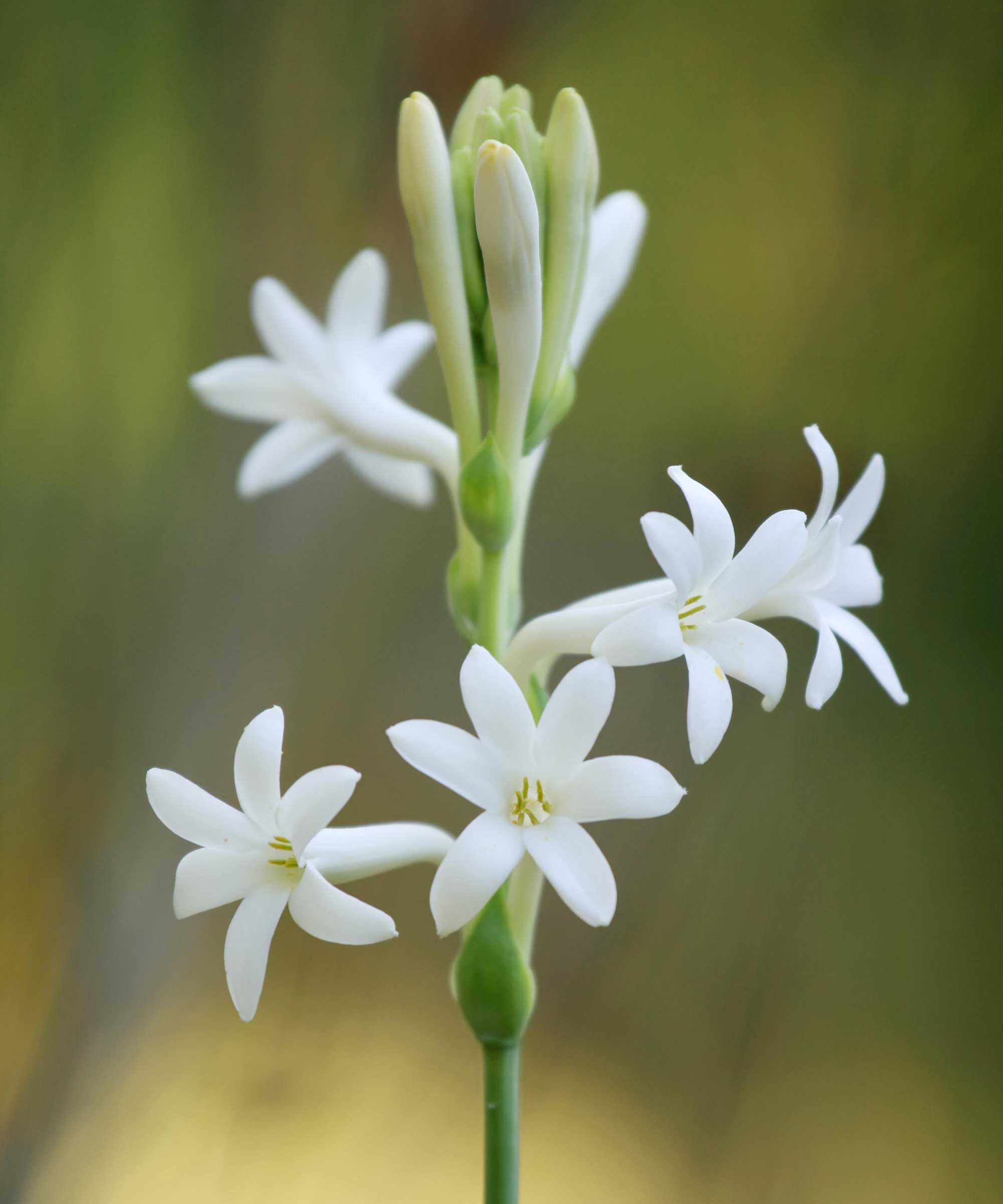
These gorgeous flowers bloom from bulbs
Autumn says, 'Tuberose is a highly fragrant flower that produces beautiful white blossoms with a sweet floral scent.'
To care for these plants in greenhouses, Autumn recommends providing them with well-draining soil in a spot with full sun to partial shade. 'Water regularly to keep the soil evenly moist, and fertilize every two to three weeks with a balanced fertilizer during the growing season to promote healthy growth and blooming.
'Support the tall flower spikes with stakes or other methods to prevent them from falling over,' she adds.
FAQs
What are some top tips for keeping greenhouse plants healthy?
There are a few important things to remember when looking after greenhouse plants.
Laurelynn and Byron say that shade cloths may have to be used if your greenhouse is in full sun – even full-sun plants can burn because of the magnifier effect, they warn. You can purchase shade cloths from Amazon.
It's also important to water your plants properly. 'Too much water can lead to disease and too high humidity can also damage plants.'
Be sure to keep an eye out for garden pests, too. If possible, you can put your plants outside in the summer months for natural predatory control, they suggest.
What are some other scented flowers to grow in a greenhouse?
Pelargoniums are one of the best plants to make a balcony smell nice, and are classic picks for greenhouses, too. You could also try gardenias.
Another option is Jasminum sambac, a suggestion from Autumn. It emits a heavenly fragrance that is powerful and sweet, especially in the evenings, and can be trained to climb trellises or grown in pots, she says.
Looking for more beautifully scented plants to grow? Our picks for the best fragrant flowers are certainly swoon-worthy.

Holly started writing about gardening five years ago, and she is a regular contributor to Homes & Gardens. She has also written many gardening features for Woman & Home and Real Homes, too. She has previous experience as a professional gardener, where she helped to plant and maintain private gardens. Holly has also looked after allotment plots over the years and loves to grow her own flowers and veggies from seed. In her spare time, she enjoys visiting local gardens, botanical drawing, and tending to her ever-growing collection of houseplants.